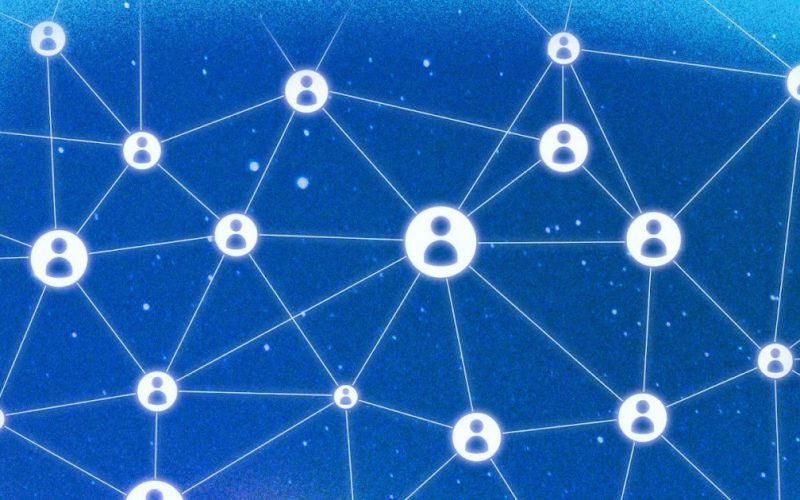In recent years, a transformative shift has been underway in the realm of social media with the rise of Decentralized Social Networks. These innovative platforms operate outside the control of centralized authorities, offering users greater autonomy over their data, enhanced, and a more user-centric approach to online interaction. Decentralized Social Networks are reshaping the landscape of online communication in 2024, providing a decentralized infrastructure that empowers users by putting them in control of their digital identities and content. In this in-depth exploration, we delve into the rapid emergence of Decentralized Social Networks and their significant impact on the way we connect, share, and engage online.
Understanding Decentralized Social Networks: Empowering User Autonomy
Decentralized Social Networks represent a paradigm shift from traditional social media platforms by prioritizing user autonomy, data ownership, and transparency. By leveraging blockchain technology and decentralized protocols, these networks enable users to retain ownership of their data, control their privacy settings, and engage in peer-to-peer interactions without the need for intermediaries, fostering a more democratic and user-centric online environment.
Data Ownership and Privacy: Putting Users in Control
One of the key features of Decentralized Social Networks is the emphasis on data ownership and privacy, giving users the ability to manage their personal information and content securely. Unlike centralized platforms that monetize user data, decentralized networks provide users with greater control over their data, allowing them to choose how, when, and with whom they share their information while protecting their privacy rights and digital sovereignty.
Transparency and Accountability: Fostering Trust and Integrity
Decentralized Social Networks prioritize transparency and accountability by design, creating a trustless environment where user interactions are recorded on an immutable public ledger. This ensures the integrity of data, enhances security against manipulation or censorship, and holds both users and platforms accountable for their actions, promoting a culture of trust, authenticity, and ethical behavior in online communication.
Community Governance and Participation: Democratizing Decision-Making
Decentralized Social Networks often implement community-driven governance models that enable users to participate in decision-making processes, platform development, and content moderation. Through voting mechanisms, decentralized consensus algorithms, and decentralized autonomous organizations (DAOs), users have a voice in shaping the rules, policies, and direction of the network, fostering a more inclusive and democratic ecosystem.

Interoperability and Cross-Platform Integration: Connecting Networks
Interoperability and cross-platform integration are key features of Decentralized Social Networks, allowing users to connect and interact across different decentralized platforms and services seamlessly. By leveraging open standards, protocols, and APIs, decentralized networks enable data portability, cross-network communication, and enhanced connectivity, creating a more interconnected and interoperable social media landscape that transcends platform boundaries.
Content Monetization and Tokenization: Empowering Creators
Decentralized Social Networks offer innovative approaches to content monetization and tokenization, empowering creators to earn rewards for their contributions and engage in decentralized economic systems. Through token incentives, smart contracts, and decentralized payment networks, users can monetize their content, receive microtransactions, and participate in tokenized economies that reward value creation and community engagement on the network.
Resilience and Censorship Resistance: Safeguarding Freedom of Expression
Decentralized Social Networks are designed to be resilient and censorship-resistant, safeguarding freedom of expression, and combating censorship and de-platforming. By distributing data across a decentralized network of nodes, using encryption, and implementing censorship-resistant protocols, these platforms provide users with robust protection against content moderation, censorship, and external interference, ensuring the integrity and openness of online discourse.
Self-Sovereign Identity and Digital Rights: Empowering Users
Decentralized Social Networks prioritize self-sovereign identity and digital rights, empowering users to own and control their online identities independent of centralized platforms. By utilizing cryptographic keys, decentralized identifiers, and verifiable credentials, individuals can authentically represent themselves, manage their online personas, and assert their digital rights without relying on third-party intermediaries, enhancing privacy and security in online interactions.

Environmental Sustainability and Green Blockchain: Minimizing Impact
Amid growing concerns about the environmental impact of blockchain technology, Decentralized Social Networks are striving to minimize their ecological footprint by implementing sustainable practices and green blockchain solutions. Through energy-efficient consensus mechanisms, proof-of-stake algorithms, and carbon offset initiatives, decentralized networks are reducing their energy consumption, lowering their carbon emissions, and contributing to a more environmentally sustainable social media ecosystem.
Future Trends and Adoption: Shaping the Digital Landscape
As Decentralized Social Networks continue to gain traction and adoption in 2024, they are poised to shape the future of online communication and connectivity. With increasing user awareness of data privacy, security concerns, and platform accountability, decentralized networks are likely to drive innovation, foster user empowerment, and redefine the dynamics of social media by placing users at the center of the digital experience.
In conclusion, the rise of Decentralized Social Networks in 2024 marks a transformative moment in the evolution of online communication, offering users a more transparent, secure, and empowering alternative to centralized social media platforms. By prioritizing user autonomy, data ownership, and community governance, decentralized networks are revolutionizing the way we connect, share, and engage online, paving the way for a more decentralized, user-centric, and resilient social media landscape.










